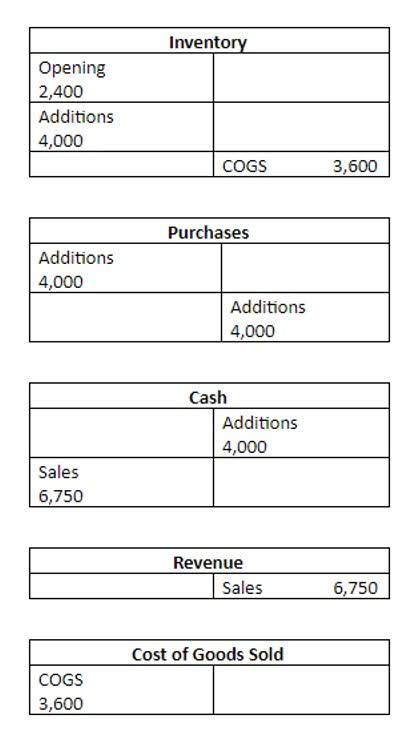
Most data needed for state reporting requirements, including three-way reconciliation reports, should be easily found within the balance sheet and profit and loss statement. But having up-to-date and accurate bookkeeping records and leveraging professional accountants experienced in accounting for law firms is key to unlocking law firm growth and financial success for your practice. InvoiceSherpa supports accounting for law firms by saving you time and energy, increasing your cash flow, and getting invoices paid faster. InvoiceSherpa automates your accounts receivable with reminders and https://www.bookstime.com/ collection software.
- Your retained earnings statement shows how owners’ equity has changed in a given period.
- When it comes to accounting for law firms, whether you handle it yourself or hire someone, your bookkeeping system must maintain a consistent schedule for carrying out bookkeeping tasks.
- Your statement of cash flows (or cash flow statement) shows you where your cash comes from and where it goes in a month.
- At a minimum, your listing of financial accounts will include a pooled trust account as a segregated liability, with sub-accounts to track client retainer balances.
- It involves a ton of inefficient, manual work—involving a lot of spreadsheets, paper invoices, inputting data entry, and struggles with collections.
- It also allows the customization of accounts to fit each firm’s unique needs, ensuring that complex transactions like client trust funds or partner distributions are correctly classified.
Commingling Funds
- Trust accounts are one of the most common areas where legal accounting mistakes are made.
- Although you may not have studied accounting/bookkeeping in college, it’s important to understand your firm’s financial big picture to maximize your business profit and ensure compliance.
- If you have a line of credit that hasn’t been drawn upon, it should be counted as an asset (you could consider it cash on hand).
- Properly tracking billable hours and expenses is necessary for law firms to accurately record law firm revenue, issue correct invoices, and maintain financial records.
- Second, as a business owner, you should receive a reasonable return on your investment.
Data discrepancies related to invoices, bills, and other financial transactions can lead to larger issues. Manual bookkeeping can also lead to small mistakes—like duplicate entries—that can lead to reporting law firm chart of accounts and compliance issues down the road. However, failing to track these expenses can lead to missed billable hours. If your team does not have a clear time tracking policy or a clear agreement with the client, you may also have issues properly billing for that time. A comprehensive cloud-based accounting solution can help you keep your data organized in one spot—and is available from anywhere. Solutions like MyCase Accounting allow you to streamline accounting work, case data, and client billing to give you control and visibility over your firm’s finances.

What is the Difference Between a Legal Assistant Vs. Paralegal?
Additionally, CARET Legal provides a clear and organized audit trail for each transaction. This helps track and review transactions, which is particularly useful during audits or when investigating discrepancies. It also simplifies the generation of financial statements, saving time and ensuring accuracy. Accounting for law firms becomes so much easier when you work with an accounting professional from the beginning. Legal bookkeepers and legal accountants work with your firm’s financials, with the shared goal of helping your firm financially grow and succeed.
Lili Launches Lili Connect for Small Business Financial Management
- Staying on top of your cash position can help you avoid unexpected dips or manage them when they come.
- A majority of law firms have expenses that are reimbursed from their clients.
- You can distribute profit to the owners/shareholders as dividends or reinvest it back into the company to fund future growth.
- One crucial source of financial knowledge for any firm is its law firm chart of accounts.
- It not only ensures compliance and accuracy but also acts as a strategic tool for informed business decisions.
- Because we are committed to frequent communication and ready accessibility, we can obtain client input quickly and move forward in an expeditious manner.
To effectively manage legal accounting for law firms, it’s wise to start with a foundation that works for all aspects of running your firm. Bookkeepers record the financial transactions and balance the financial accounts for your firm. Legal bookkeeping takes place before any accounting can occur and is an important administrative task for any law firm. For lawyers and law firms, it’s a good idea to keep meticulous records and work with tax accountants to ensure that they meet all tax regulations (as well as that they make any allowed tax deductions).
- By addressing these requirements from the outset, your chart of accounts becomes a powerful tool for financial management and decision-making.
- Accurate accounting helps law firms ensure they remain compliant with all laws and requirements, maintain accurate records to inform business decisions, and provide transparency with clients about their funds.
- With CaseFox’s integration, your law firm can optimize financial management, improve efficiency, and drive profitability.
- When setting up your chart of accounts, be sure to pay special attention to your handling of trust liability accounts to ensure you are keeping accurate records and following the rules.
- Many lawyers are required to set up Interest on Lawyer Trust (IOLTA) accounts depending on the state they operate in.
- For example, your asset account might contain sub-accounts for your operating bank account, accounts receivable, and advanced client costs.
- As a general rule, law firms may not keep the interest earned on funds they hold in escrow or in trust accounts.

Conversely, cash basis accounting recognizes revenue when you’re paid (i.e., when the cash is received) and expenses when they’re paid. The tax implications of this method also allow your firm to pay tax on income once it’s received and in the bank. Interestingly, tax deductions can ease the burden when used correctly—yet not all lawyers are up-to-date on their tax deductions. Many lawyers go to one or the other extreme—they either claim everything (and possibly more than they’re allowed online bookkeeping to), or they’re so afraid to overstep they miss out on tax deductions.

For example, if your firm paid court filing fees for the client, a part of their paid invoice must cover that cost. After covering client expenses, the leftover amount is considered income. This may sound feasible with one client, but a DIY system can quickly become difficult to manage once you gain more clients and add more lawyers to your team. Files can become difficult to find as they’re stored across different computers and places across your office. Disorganized bookkeeping can lead to data discrepancies, payment issues, and other challenges. During tax season, those using cash basis accounting are generally only required to report on income received and expenses paid in the year they were received or paid.